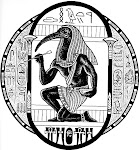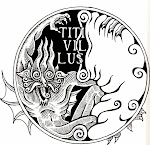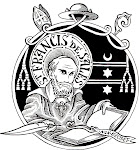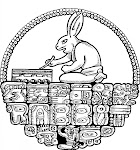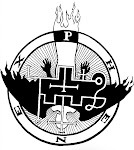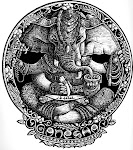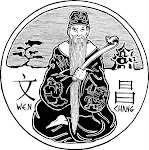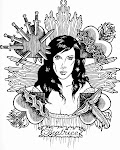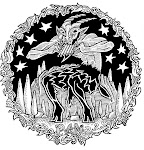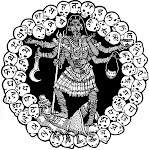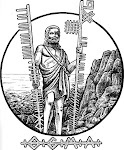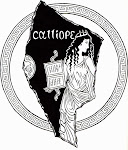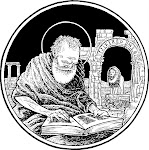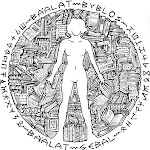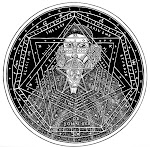
I who now bid thee on this errand forth
Am Beatrice; from a place I come
Revisited with joy.
— Dante, Inferno, Canto II
As I contemplate the inscrutable courts and customs of the Writers Pantheon, I often wonder whether there is a hierarchy, or precedence, or protocols, or some convention the great powers use to acknowledge the status due to one divinity or another. Surely the elder gods are feared and revered by the lesser courtiers, and surely there are recognized and respected spheres of influence, a sort of architecture of inspiration among these literary governors.
I turned to Dante Alighieri for clues. Clearly this great Italian poet, who was able to map the relative topographies and internal workings of Hell, Purgatory, and Paradise, had special access to what he called “the high chamber to which all the spirits of the senses carry their perceptions”. That high chamber was revealed to him at the very moment he first encountered Beatrice Portinari, his life-long muse, the woman he elevates to the ranks of the Writers Pantheon in La Vita Nuova (1295), a series of sonnets and commentaries documenting his timeless affection. He is only nine years old, she is eight, when he first catches sight of her. In spite of their youth, in spite of her general disregard as they grow older, in spite of their arranged marriages to other people, Beatrice would forever occupy the supreme place in Dante’s imagination, particularly in the decades after her death at age 24, when Dante wrote one of the greatest works in world literature, The Divine Comedy (1308-1321).
Considering Dante’s age at the time his passion for Beatrice was ignited, I consulted my nine-year-old daughter. I described to her Dante’s experience and achievement and asked for her thoughts on someone her age discovering a muse and dedicating their literary efforts to that inspirational figure for life. I admit, I was hoping she would see herself as a potential Dante, rather than a potential muse, but in fact she had no reverence for either party: “I think he’s an idiot,” she said. “He should have written about other stuff too.”
Of course he did write other stuff, but nothing to match the achievement of the Divina Commedia, in which Beatrice is presented as the motivating force, the poet’s point of reference for love, inspiration, and guidance. The poem recounts Dante’s epic journey through Hell, Purgatory, and Paradise. In order to record this ineffable experience in language worthy of the endeavour, early in the poem Dante appeals to a number of higher authorities, and in so doing I believe he provides the clue I was searching for: an outline of the division of powers within the Writers Pantheon, or what I will call the Courts of Inspiration.
Three of the four Courts of Inspiration are identified in a concise series of invocations just as Dante is about to set off on his journey into Hell, led by the spirit of the Latin poet Virgil, author of the Aeneid. Here is Dante’s plea for divine assistance, not for safety on the road ahead, but for the ability to recall and write down his experience properly:
O Muses! O high genius! now vouchsafe
Your aid! O mind! that all I saw has kept
Safe in a written record, here thy worth
And eminent endowments come to proof.
I thus began: ‘Bard! thou who art my guide,
Consider well, if virtue be in me
Sufficient, ere to this high enterprise
Thou trust me. … (Inferno, Canto II)
Dante reveals that the first Court of Inspiration is that of High Genius, the realm of the classical muses, the jurisdiction of Thoth, and Inanna, and Odin, and the Archangels, and all of the eminent deities who are the very originators and eternal sovereigns of the literary arts.
The second Court of Inspiration is that of the Mind, the domain of pure invention and of memory, the site of internal access to creative power, enabling mere mortals to invent alphabets, to recall imagined realms, to conceive and construct a Tower of Babel both in stone and in text.
The third Court of Inspiration is that of the Bard, the place of veneration and of influence achieved by figures such as Virgil, Homer, Shakespeare, and those other rare beings whose works transform the historical literary figure into a venerated literary icon.
The fourth Court of Inspiration is revealed by Virgil after he has heard Dante’s appeal for divine guidance. He explains that his role as the poet’s guide in fact was commanded by Beatrice herself. She had seen that Dante was lost in the underworld, and so instructed Virgil to provide assistance, making her own motives clear: “Love brought me thence”.
Thus the fourth Court of Inspiration is that of Love, the high chamber where the earthly muse, beatified by a writer’s affection and devoted literary practice, serves as that writer’s personal patron.
Long after her death, Beatrice continued to be the source for Dante’s most inspired writing. His imagined encounter with her in Paradise is unequivocal:
... I faced Beatrice, who quickly signaled,
with a glance, that I should now pour forth
the waters welling from the source within me.
(Paradiso, Canto XXIV)
Has any muse ever inspired such faithful industry or such a high degree of literary achievement? If my interpretation of the Courts of Inspiration mapped by Dante is accurate, surely Beatrice Portinari presides as a Queen where Love rules in the Writers Pantheon.
Sources
“Beatrice Portinari” Wikipedia
http://en.wikipedia.org/wiki/Beatrice_Portinari (accessed 9 May 2009)
“Dante and Beatrice” Fascinating History
http://fascinatinghistory.blogspot.com/2006/01/dante-and-beatrice.html (accessed 9 May 2009)
“Divine Comedy” Wikipedia
http://en.wikipedia.org/wiki/Divine_Comedy (accessed 9 May 2009)
The Divine Comedy The Electronic Literature Foundation
http://www.divinecomedy.org/divine_comedy.html (accessed 9 May 2009)
La Vita Nuova. The ‘New Life’ of Dante Alighieri. Translated by A.S. Kline.
http://www.adkline.freeuk.com/TheNewLifeI.htm (accessed 9 May 2009)
Princeton Dante Project
http://etcweb.princeton.edu/dante/pdp/ (accessed 9 May 2009)
